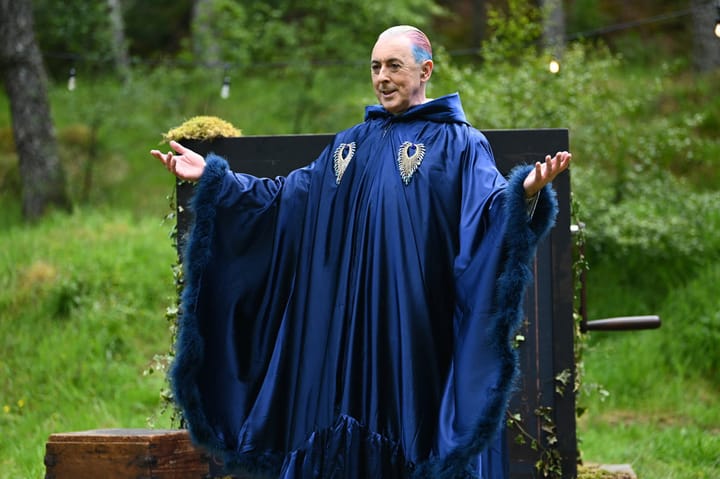Review: Dexter: Resurrection, "And Justice For All..." | Season 1, Episode 10
"I learned something about myself here."

As our coverage of Dexter: Resurrection comes to a close, a reminder about our ongoing subscription drive. $5 gets you access to this review, but until 9/30 $40 gets you a full year of access to our reviews. For more information, click here.
Dexter: Resurrection, it seems, knows exactly what kind of fun it's been having. After the plot wraps up with Dexter literally driving off into the night (albeit on a very nice boat), and after we get this season's equivalent of the "I learned a lot that summer" internal monologue, our protagonist reiterates that, after all this time, he finally feels as though he's accepted all the various parts of himself. He's made peace with his past, accepted his future, and found balance with the incomplete part of himself that still needs other people—and even found a way to use that to make himself a better man. "I'm exactly who I need to be," he muses, before turning to look right at the camera, break the fourth wall, and with the hint of a smile, continue: "...exactly who you want me to be."
And that gets at the fundamental appeal of why this reboot—revival?—has been such a delight. Dexter Morgan, in his best form, has gone past the need for the sorts of learn-and-grow-and-change type of characterization we normally get from drama. Especially in the ensuing years since the show first went off the air, he's become a part of the pop culture firmament. We may all not "know" Dexter Morgan, but even people who don't watch the show know Dexter Morgan. He's the serial killer who only kills bad guys. He's as much icon as person. And at this point, he's got a persona and pathos, that—if not frozen in amber Jurassic Park-style—are at the very least drilled down to key elements that are now presumably locked in. These are elements that Resurrection has managed to take and re-instill in a manner that recalls the character at his best and most entertaining. These episodes began, in essence, with the question, "What makes Dexter enjoyable to watch?" Clyde Phillips and company went back to the first four seasons, rediscovered that playful, even endearing light at the heart of the character's darkness, and said, "Right—this is all supposed to be fun!"
Alongside Sherlock Holmes, Jessica Fletcher, Kwai-Chang Caine, or any other iconic, well-established go-gooder who enjoys righting wrongs and having adventures, Dexter Morgan has a formula for success—one that, once determined, becomes an anchor for whatever kind of fungible life-and-death struggle you want to throw that character's way. Even facing imminent doom or threats to his family, there's a part of Dexter that needs to be excited, even pleased, by the predicament in which he finds himself; if Dexter isn't having a little fun, then we aren't, either. It's what Hall brings in spades; hell, it's what even Patrick Gibson, as young Dexter on the otherwise forgettable Original Sin prequel series, managed to locate: Death comes for us all, so even when he's angry, or upset, or worried, there's something in Dexter that's having a good time. And when he is, then so, by extension, can we.



